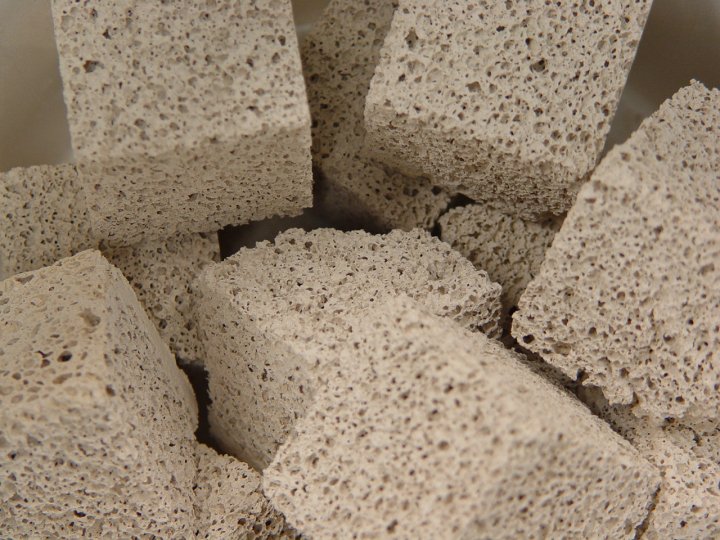|
Hydrogeology
Hydrogeology (''hydro-'' meaning water, and ''-geology'' meaning the study of the Earth) is the area of geology that deals with the distribution and movement of groundwater in the soil and rock (geology), rocks of the Earth's crust (geology), crust (commonly in aquifers). The terms groundwater hydrology, geohydrology, and hydrogeology are often used interchangeably. Hydrogeology is the study of the laws governing the movement of subterranean water, the mechanical, chemical, and thermal interaction of this water with the porous solid, and the transport of energy, chemical constituents, and particulate matter by flow (Domenico and Schwartz, 1998). Groundwater engineering, another name for hydrogeology, is a branch of engineering which is concerned with groundwater movement and design of wells, pumps, and drains. The main concerns in groundwater engineering include groundwater contamination, conservation of supplies, and water quality.Walton, William C. (November 1990). ' ... [...More Info...] [...Related Items...] OR: [Wikipedia] [Google] [Baidu] |
Aquifer
An aquifer is an underground layer of water-bearing, permeable rock, rock fractures, or unconsolidated materials ( gravel, sand, or silt). Groundwater from aquifers can be extracted using a water well. Aquifers vary greatly in their characteristics. The study of water flow in aquifers and the characterization of aquifers is called hydrogeology. Related terms include aquitard, which is a bed of low permeability along an aquifer, and aquiclude (or ''aquifuge''), which is a solid, impermeable area underlying or overlying an aquifer, the pressure of which could create a confined aquifer. The classification of aquifers is as follows: Saturated versus unsaturated; aquifers versus aquitards; confined versus unconfined; isotropic versus anisotropic; porous, karst, or fractured; transboundary aquifer. Challenges for using groundwater include: overdrafting (extracting groundwater beyond the equilibrium yield of the aquifer), groundwater-related subsidence of land, groundwater becomin ... [...More Info...] [...Related Items...] OR: [Wikipedia] [Google] [Baidu] |
Earth Science
Earth science or geoscience includes all fields of natural science related to the planet Earth. This is a branch of science dealing with the physical, chemical, and biological complex constitutions and synergistic linkages of Earth's four spheres, namely biosphere, hydrosphere, atmosphere, and geosphere. Earth science can be considered to be a branch of planetary science, but with a much older history. Earth science encompasses four main branches of study, the lithosphere, the hydrosphere, the atmosphere, and the biosphere, each of which is further broken down into more specialized fields. There are both reductionist and holistic approaches to Earth sciences. It is also the study of Earth and its neighbors in space. Some Earth scientists use their knowledge of the planet to locate and develop energy and mineral resources. Others study the impact of human activity on Earth's environment, and design methods to protect the planet. Some use their knowledge about Earth processe ... [...More Info...] [...Related Items...] OR: [Wikipedia] [Google] [Baidu] |
Groundwater
Groundwater is the water present beneath Earth's surface in rock and soil pore spaces and in the fractures of rock formations. About 30 percent of all readily available freshwater in the world is groundwater. A unit of rock or an unconsolidated deposit is called an aquifer when it can yield a usable quantity of water. The depth at which soil pore spaces or fractures and voids in rock become completely saturated with water is called the water table. Groundwater is recharged from the surface; it may discharge from the surface naturally at springs and seeps, and can form oases or wetlands. Groundwater is also often withdrawn for agricultural, municipal, and industrial use by constructing and operating extraction wells. The study of the distribution and movement of groundwater is hydrogeology, also called groundwater hydrology. Typically, groundwater is thought of as water flowing through shallow aquifers, but, in the technical sense, it can also contain soil moisture, per ... [...More Info...] [...Related Items...] OR: [Wikipedia] [Google] [Baidu] |
Geology
Geology () is a branch of natural science concerned with Earth and other astronomical objects, the features or rocks of which it is composed, and the processes by which they change over time. Modern geology significantly overlaps all other Earth sciences, including hydrology, and so is treated as one major aspect of integrated Earth system science and planetary science. Geology describes the structure of the Earth on and beneath its surface, and the processes that have shaped that structure. It also provides tools to determine the relative and absolute ages of rocks found in a given location, and also to describe the histories of those rocks. By combining these tools, geologists are able to chronicle the geological history of the Earth as a whole, and also to demonstrate the age of the Earth. Geology provides the primary evidence for plate tectonics, the evolutionary history of life, and the Earth's past climates. Geologists broadly study the properties and processes of ... [...More Info...] [...Related Items...] OR: [Wikipedia] [Google] [Baidu] |
Soil Science
Soil science is the study of soil as a natural resource on the surface of the Earth including soil formation, classification and mapping; physical, chemical, biological, and fertility properties of soils; and these properties in relation to the use and management of soils.Jackson, J. A. (1997). Glossary of Geology (4. ed.). Alexandria, Virginia: American Geological Institute. p 604. Sometimes terms which refer to branches of soil science, such as pedology (formation, chemistry, morphology, and classification of soil) and edaphology (how soils interact with living things, especially plants), are used as if synonymous with soil science. The diversity of names associated with this discipline is related to the various associations concerned. Indeed, engineers, agronomists, chemists, geologists, physical geographers, ecologists, biologists, microbiologists, silviculturists, sanitarians, archaeologists, and specialists in regional planning, all contribute to further kn ... [...More Info...] [...Related Items...] OR: [Wikipedia] [Google] [Baidu] |
Pressure Gradient
In atmospheric science, the pressure gradient (typically of air but more generally of any fluid) is a physical quantity that describes in which direction and at what rate the pressure increases the most rapidly around a particular location. The pressure gradient is a dimensional quantity expressed in units of pascals per metre (Pa/m). Mathematically, it is the gradient of pressure as a function of position. The negative gradient of pressure is known as the force density. In petroleum geology and the petrochemical sciences pertaining to oil wells, and more specifically within hydrostatics, pressure gradients refer to the gradient of vertical pressure in a column of fluid within a wellbore and are generally expressed in pounds per square inch per foot (psi/ft). This column of fluid is subject to the compound pressure gradient of the overlying fluids. The path and geometry of the column is totally irrelevant; only the vertical depth of the column has any relevance to the vert ... [...More Info...] [...Related Items...] OR: [Wikipedia] [Google] [Baidu] |
Experiment
An experiment is a procedure carried out to support or refute a hypothesis, or determine the efficacy or likelihood of something previously untried. Experiments provide insight into cause-and-effect by demonstrating what outcome occurs when a particular factor is manipulated. Experiments vary greatly in goal and scale but always rely on repeatable procedure and logical analysis of the results. There also exist natural experimental studies. A child may carry out basic experiments to understand how things fall to the ground, while teams of scientists may take years of systematic investigation to advance their understanding of a phenomenon. Experiments and other types of hands-on activities are very important to student learning in the science classroom. Experiments can raise test scores and help a student become more engaged and interested in the material they are learning, especially when used over time. Experiments can vary from personal and informal natural comparisons ... [...More Info...] [...Related Items...] OR: [Wikipedia] [Google] [Baidu] |
Theory
A theory is a rational type of abstract thinking about a phenomenon, or the results of such thinking. The process of contemplative and rational thinking is often associated with such processes as observational study or research. Theories may be scientific, belong to a non-scientific discipline, or no discipline at all. Depending on the context, a theory's assertions might, for example, include generalized explanations of how nature works. The word has its roots in ancient Greek, but in modern use it has taken on several related meanings. In modern science, the term "theory" refers to scientific theories, a well-confirmed type of explanation of nature, made in a way consistent with the scientific method, and fulfilling the criteria required by modern science. Such theories are described in such a way that scientific tests should be able to provide empirical support for it, or empirical contradiction (" falsify") of it. Scientific theories are the most reliable, rigorous, an ... [...More Info...] [...Related Items...] OR: [Wikipedia] [Google] [Baidu] |
Boy Drinks From A Tap At A NEWAH WASH Water Project In Puware Shikhar, Udayapur District, Nepal
A boy is a young male human. The term is commonly used for a child or an adolescent. When a male human reaches adulthood, he is described as a man. Definition, etymology, and use According to the ''Merriam-Webster Dictionary'', a boy is "a male child from birth to adulthood". The word "boy" comes from Middle English ''boi, boye'' ("boy, servant"), related to other Germanic words for ''boy'', namely East Frisian ''boi'' ("boy, young man") and West Frisian ''boai'' ("boy"). Although the exact etymology is obscure, the English and Frisian forms probably derive from an earlier Anglo-Frisian *''bō-ja'' ("little brother"), a diminutive of the Germanic root *''bō-'' ("brother, male relation"), from Proto-Indo-European *''bhā-'', *''bhāt-'' ("father, brother"). The root is also found in Norwegian dialectal ''boa'' ("brother"), and, through a reduplicated variant *''bō-bō-'', in Old Norse ''bófi'', Dutch ''boef'' "(criminal) knave, rogue", German ''Bube'' ("knave, rogue ... [...More Info...] [...Related Items...] OR: [Wikipedia] [Google] [Baidu] |
Porous Medium
A porous medium or a porous material is a material containing pores (voids). The skeletal portion of the material is often called the "matrix" or "frame". The pores are typically filled with a fluid (liquid or gas). The skeletal material is usually a solid, but structures like foams are often also usefully analyzed using concept of porous media. A porous medium is most often characterised by its porosity. Other properties of the medium (e.g. permeability, tensile strength, electrical conductivity, tortuosity) can sometimes be derived from the respective properties of its constituents (solid matrix and fluid) and the media porosity and pores structure, but such a derivation is usually complex. Even the concept of porosity is only straightforward for a poroelastic medium. Often both the solid matrix and the pore network (also known as the pore space) are continuous, so as to form two interpenetrating continua such as in a sponge. However, there is also a concept of closed p ... [...More Info...] [...Related Items...] OR: [Wikipedia] [Google] [Baidu] |
Urban Planning
Urban planning, also known as town planning, city planning, regional planning, or rural planning, is a technical and political process that is focused on the development and design of land use and the built environment, including air, water, and the infrastructure passing into and out of urban areas, such as transportation, communications, and distribution networks and their accessibility. Traditionally, urban planning followed a top-down approach in master planning the physical layout of human settlements. The primary concern was the public welfare, which included considerations of efficiency, sanitation, protection and use of the environment, as well as effects of the master plans on the social and economic activities. Over time, urban planning has adopted a focus on the social and environmental bottom-lines that focus on planning as a tool to improve the health and well-being of people while maintaining sustainability standards. Sustainable development was added as one ... [...More Info...] [...Related Items...] OR: [Wikipedia] [Google] [Baidu] |






